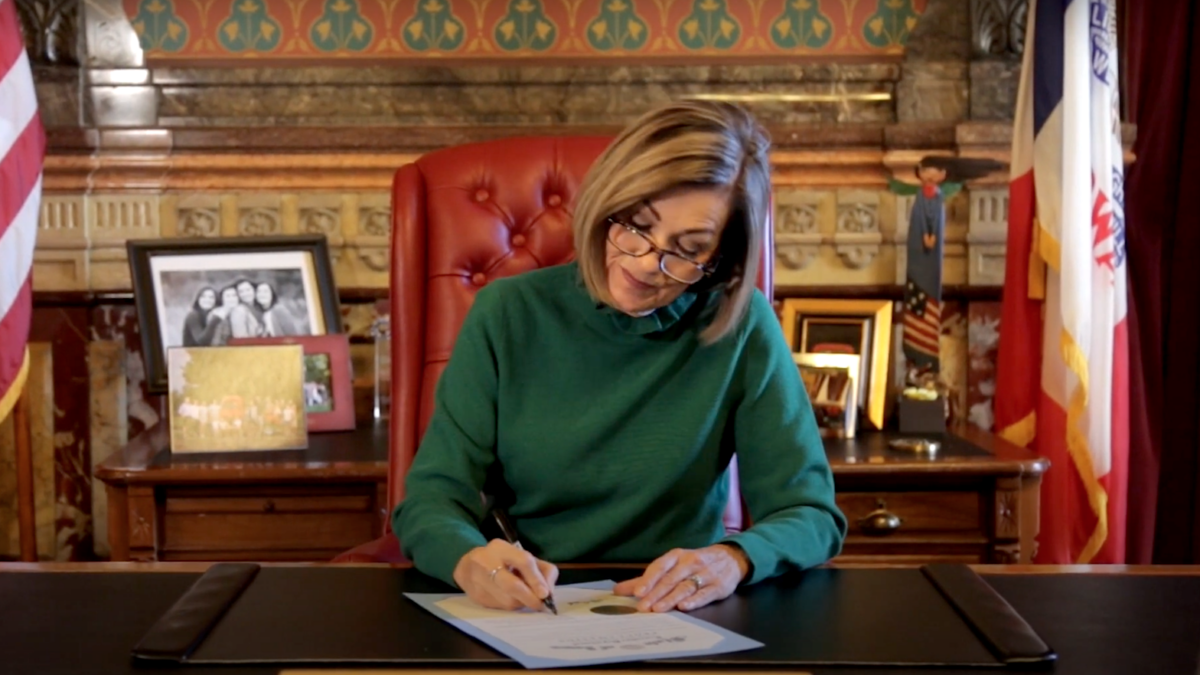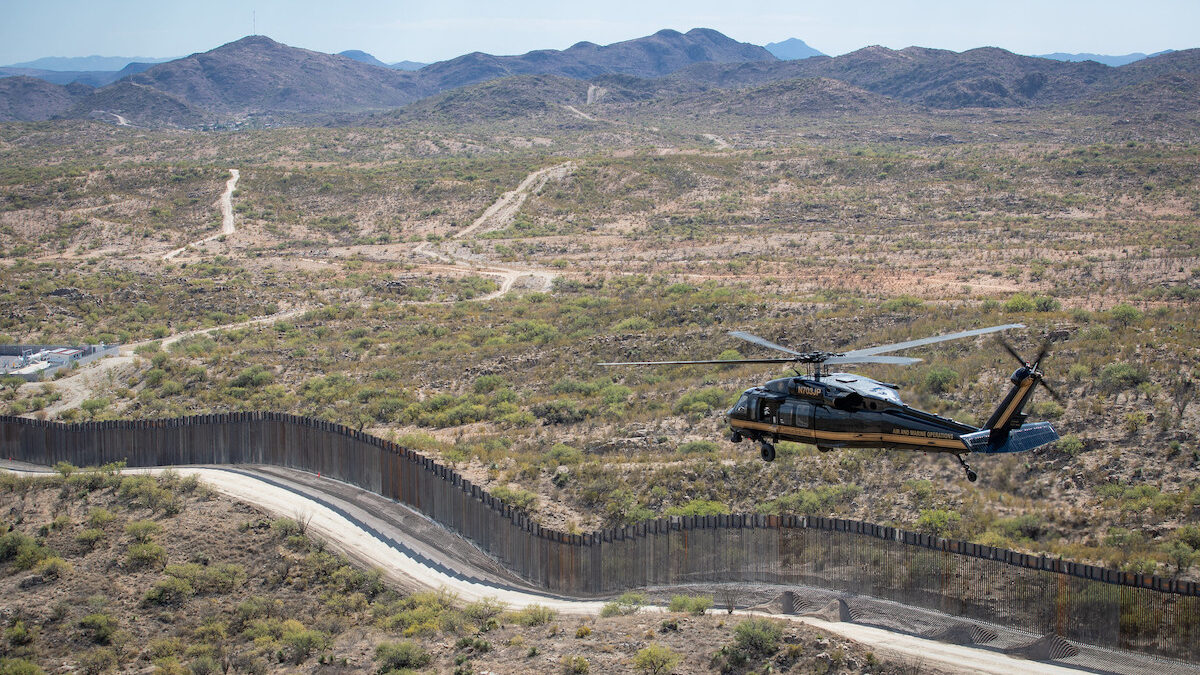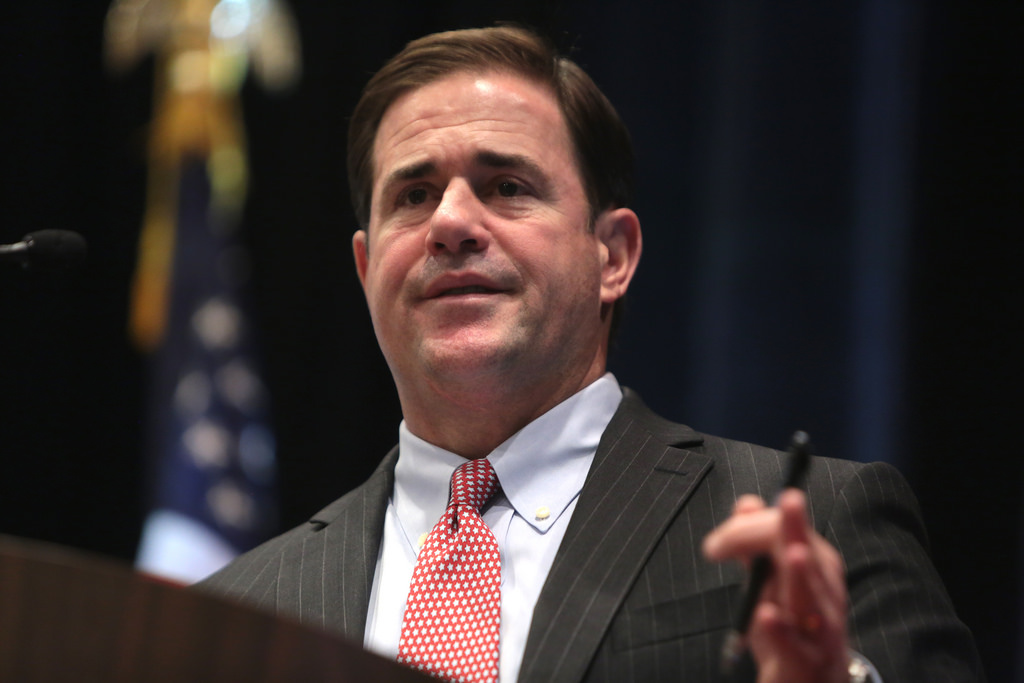Two States Now Have Universal School Choice — And Yours Could Be Next
BY: KERI INGRAHAM | JANUARY 27, 2023


KERI INGRAHAM
On Tuesday, Iowa became the second state in the country to pass universal school choice, directly providing families with funds to support their children’s education. Arizona was the trendsetter for this new wave of educational freedom after Gov. Doug Ducey signed universal school choice into law on July 7, 2022.
Now the race is on to advance educational freedom, with several red states looking to follow suit. The significance of these developments can hardly be overstated. What was once a pipe dream for many education reformers — the enabling of school choice at scale during their lifetimes — is now becoming a reality.
Iowa Gov. Kim Reynolds, true to her word, wasted no time in the 2023 legislative session by introducing the Students First Act in her Condition of the State address on Jan. 10. Within two weeks, the bill was signed into law. It took less than 24 hours for debate in the House and Senate, followed by Reynolds’ signing. The education savings account (ESA) program will provide parents with approximately $7,600 annually to allocate toward approved educational avenues. Most families are eligible in years one and two, and the benefit will be extended to all families statewide in year three.
Of course, powers beholden to leftist teachers unions should not be expected to go down without a fight. Even in pioneering state Arizona, new Democratic Gov. Katie Hobbs seeks to undo its universal school voucher expansion law in her 2023 budget proposal. With Republicans controlling both state legislative bodies, her proposal will likely go down with the same fate as her massively failed veto referendum that sought to stop the law from taking effect while she was secretary of state last fall. For a politician, Hobbs is remarkably insensitive to the views of Arizona voters, 67 percent of whom support the state’s ESA program (the number jumps to 77 percent of Arizona parents of school-aged children).
States with a Republican governor and GOP majorities in both their House and Senate, on the other hand, are leading the charge across the United States to empower parents with options. The goal is universal school choice — through ESAs — to provide flexibility for families to select their desired educational avenue. Funds can be spent on school tuition, homeschool expenses, online learning, tutoring, special needs therapy, learning materials, and other education-related expenses.
ESA programs not only afford parents options outside of government-run, union-controlled public schools, but they save the state money because typically only a portion of the student state funding is provided. For example, in Arizona, instead of upwards of $12,000 spent per student within the public system, the ESA provided to families is only $7,000.
As the race to pass universal school choice picks up speed, several states could be heading to the home stretch in the coming weeks and months.
- Utah is positioned extremely well to join the universal school choice ranks as the House and
Senate have both passed the “Utah Fits All Act” as of January 26. If signed into law by Gov.
Spencer Cox, families would have access to roughly $8,000 each year for educational expenses. - Florida is historically a national leader in school choice, with almost half its students learning in an option outside of their assigned traditional public school. Current legislation is calling for
universal school choice. With Republican lawmakers holding supermajorities in both the House
and Senate, and Gov. Ron DeSantis at the helm, it’s only a matter of time. - Oklahoma is a contender in the educational freedom race. The Education Freedom Act is currently in the Senate, which has a 40-8 Republican supermajority. The House has an 81-20 supermajority. Once the bill hits educational freedom champion Gov. Kevin Stitt’s desk, it will be signed into law. It will grant all families statewide access to an ESA based on the state’s per-pupil education expense. State Superintendent Ryan Walters is a fierce supporter of empowering Oklahoma families with educational freedom to select the schools that will best serve their children.
- Texas, traditionally lagging behind other red states on school choice, is not to be counted out this session in advancing ESAs. In May 2022, Gov. Greg Abbott urged lawmakers to empower parents through state funding following students. As the months passed, the groundwork was laid, including debunking the notion that school choice does not benefit rural areas or that it hurts rural school districts.
- West Virginia was the national leader prior to Arizona passing universal school choice in 2022. In West Virginia, roughly 93 percent of students have access to the Hope Scholarship to date. There is the possibility to expand it to 100 percent of the state’s children within the next three years. Despite the state’s families having negligible educational freedom options until 2019, West Virginia is now among the leaders.
- Indiana has efforts underway to expand the state’s existing ESA program to all students statewide while also increasing the grant amount from 90 percent of the per-student state funding to 100 percent. That would translate to an average of $7,500 allocated per student for educational expenses of the parents’ choosing.
- Arkansas shouldn’t be overlooked this session. Newly elected Gov. Sarah Huckabee Sanders has stated her support for plans to “empower parents with more choices … so no child is ever trapped in a failing school.”
The tide is turning, and the implications are tremendous. No longer will families be at the mercy of government-run, union-controlled traditional public schools. Parents in an increasing number of states will be empowered as decision-makers in their children’s education.
The question is: Which state will be next to achieve universal educational freedom?






You must be logged in to post a comment.